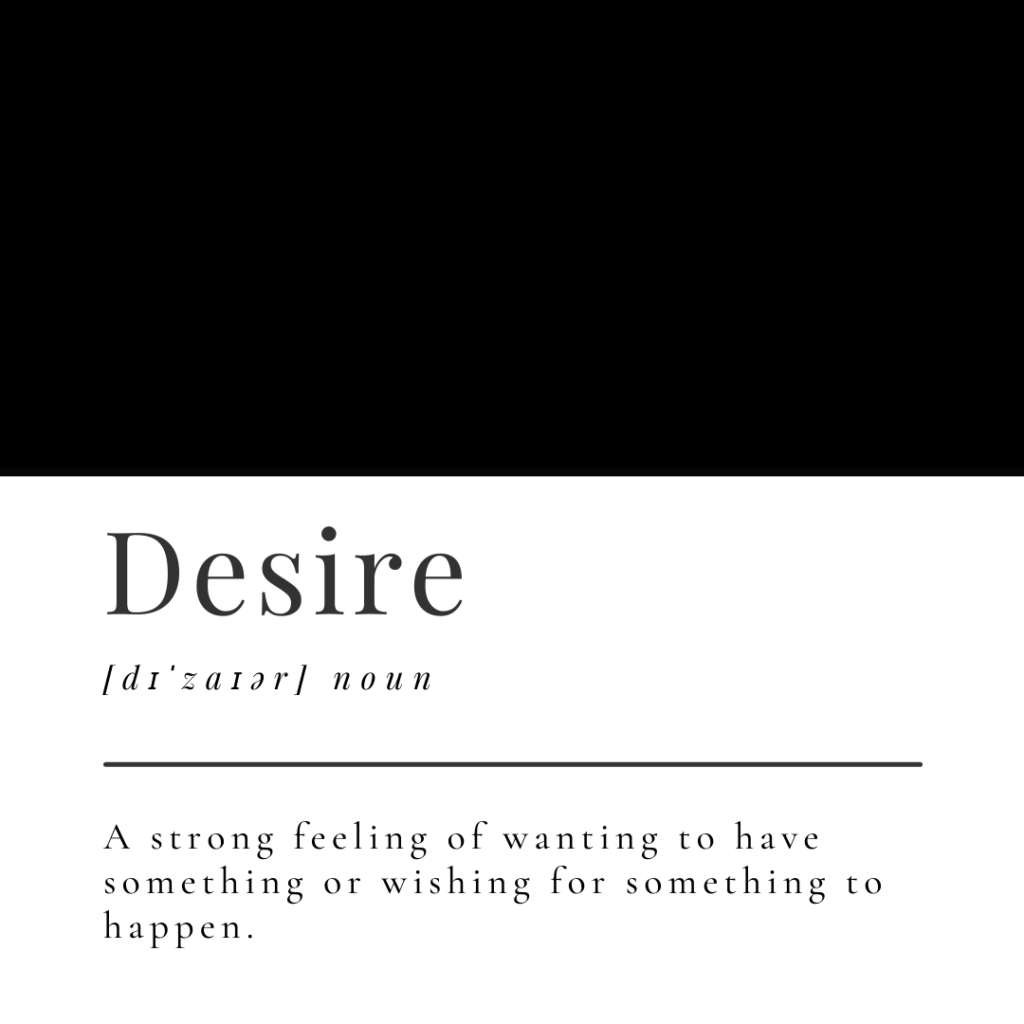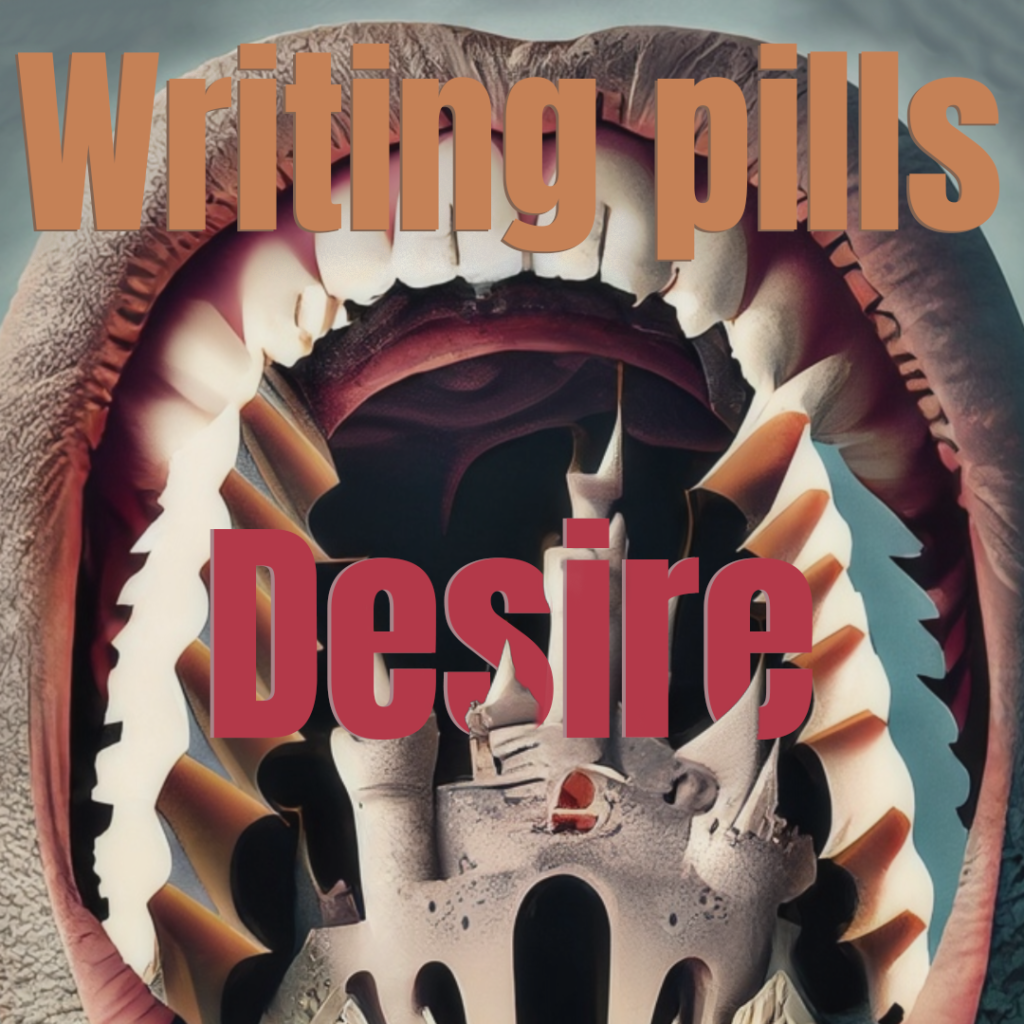D for desire
What is desire and why is it so important?
You probably listened to a song called Freed from Desire. The idea sounds familiar? That’s because desire seems to enslave us for ages. We need to know how to control that craving and, as writers, how to fully understand it. We have mentioned before the 4 Ds; let’s start with the first one, desire.
In Stanislavsky’s method of acting, desire is a super objective; obstacles and conflicts are vital for a story’s development. You must ask yourself now:
How can I create obstacles for my characters if I don’t know them yet? And how can I understand someone without knowing their personal goals?
So, let’s try to find your character’s inner desire.

First, associate it with an action verb since this is what a story is about: action. An example to avoid is to imagine a desire like this:
“A man wants to be a better person.”
Maybe our character Alan told us he wanted to be a better man when we interviewed him. If we want our story to develop, we cannot include this as a desire. His desire has to be specific and better if it is double, as in:
“Alan wants his family to trust his choices.”
The character would think in this way:
“I lied to my family all my life. It’s time for me to stop using drugs and let them trust me again.”
In short, it’s an action plan followed by the character’s primary goal. Creating a double and specific desire, we could later decide to “attack” our character from two sides.
Alan desires his family’s trust, but his nature frustrates him. He may repeat past patterns in a desperate effort to change. When, finally, Alan has found a balance, it’s too late and his family doesn’t want to speak to him anymore. How would he react to this change of events? Now that Alan is alone in the world, would he return to his bad habits, swept away in the vast tide, or would he change his life altogether? What does it mean for his family to trust him now that he’s alone? How would his family react to his changes?
The more specific the desire, the less “egocentric” it would be from the reader’s perspective. A story based on “He did this, then he did that” is quite dull, to say the least. What makes a nice story is a desire that goes in two ways: Alan depends on his family as much as they rely on him. This creates several possibilities for the writer, for you and me, to discover new plots. Remember that the desire has to follow your character’s attributes. Imagine if Alan thought about his desire in this way:
“I lied to my family all my life. It’s time for me to find a way to cover the fact that I use drugs so they will trust me again.”
See how twisted the story is now? Alan doesn’t want to be a better person but just a better liar. Like most of the people I know, sadly.

Consider this:
What would happen if the character fails to complete the objective? What would be the consequences for the character and the other characters? The reader needs to understand the risks at stake for the main character. Without any risks, the reader may lose interest in the story.
Sometimes, a character can have a desire apparent to everyone on the surface but another that only the reader knows or suspects. You, the writer, have to work with these two levels, making the reader curious about how it will end. The desire has to be clear if you want the readers to be engaged, asking themselves, “How will it end for him? Will Alan lie successfully to his family, or will he be discovered? Will they trust him again? In any case, achieving or not, the primary goal has to leave closure for the reader, an answer to all the questions raised.
So, this was the first D. If you want to read more about the second D, for distance, read writing in pills. Bye for now!

Leggere è di importanza cruciale, in quanto aumenta la capacità di focalizzare l'attenzione, la memoria e le dote comunicative in generale. Qui, su Flyingstories, puoi leggere gratis storie che possoono aiutarti a studiare italiano e inglese. Puoi cambiare la lingua del sito quando vuoi, cliccando sulla bandierina. In questo modo, puoi leggere le storie gratis in lingua italiana e inglese.
Non sei pronto a leggere una storia lunga come Ritorna al futuro o Anime vive? Tranquillo, pui sempre leggere le storie brevi in italiano e in inglese!
Questo articolo è scritto dallo scrittore e copywriter Daniele Frau.